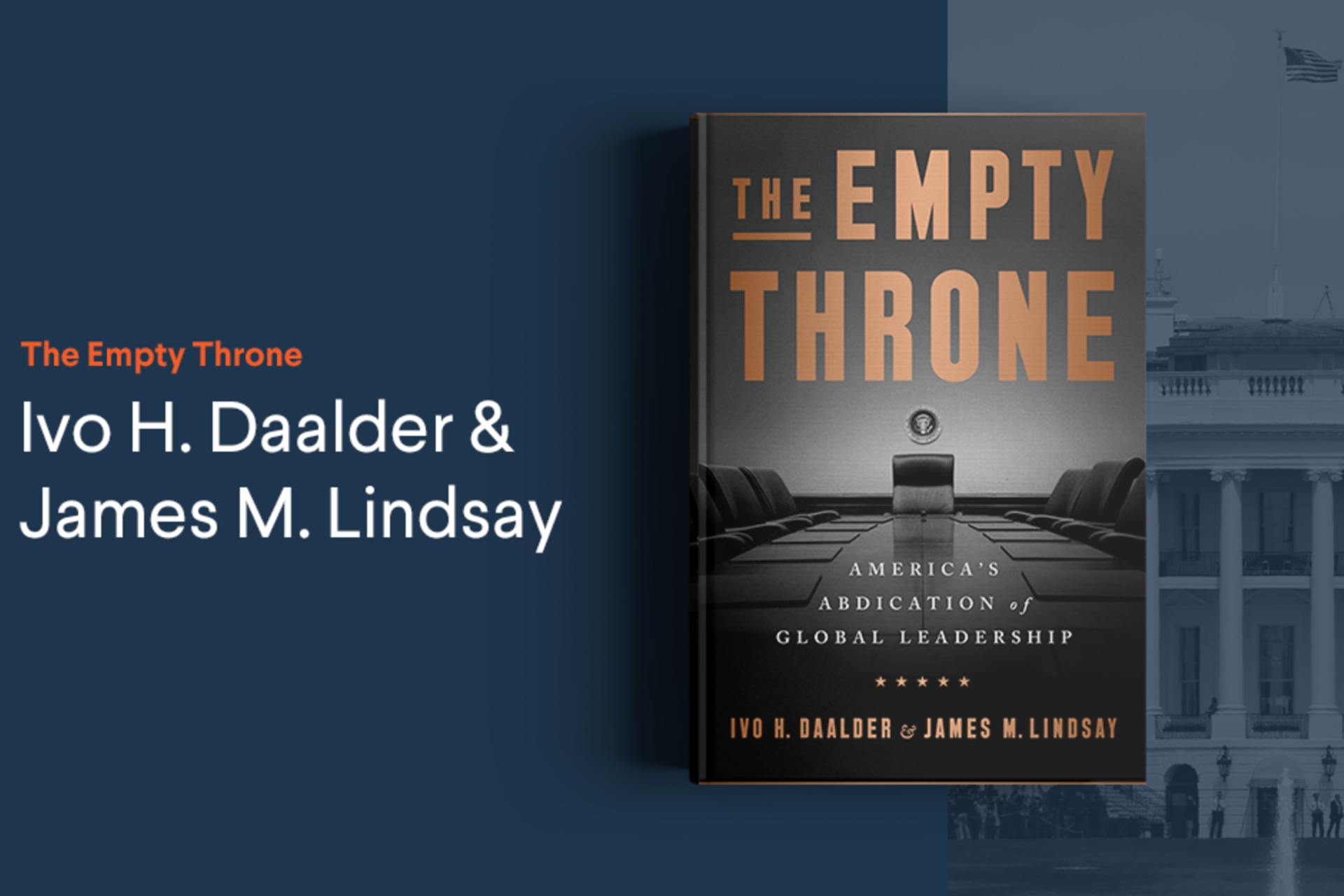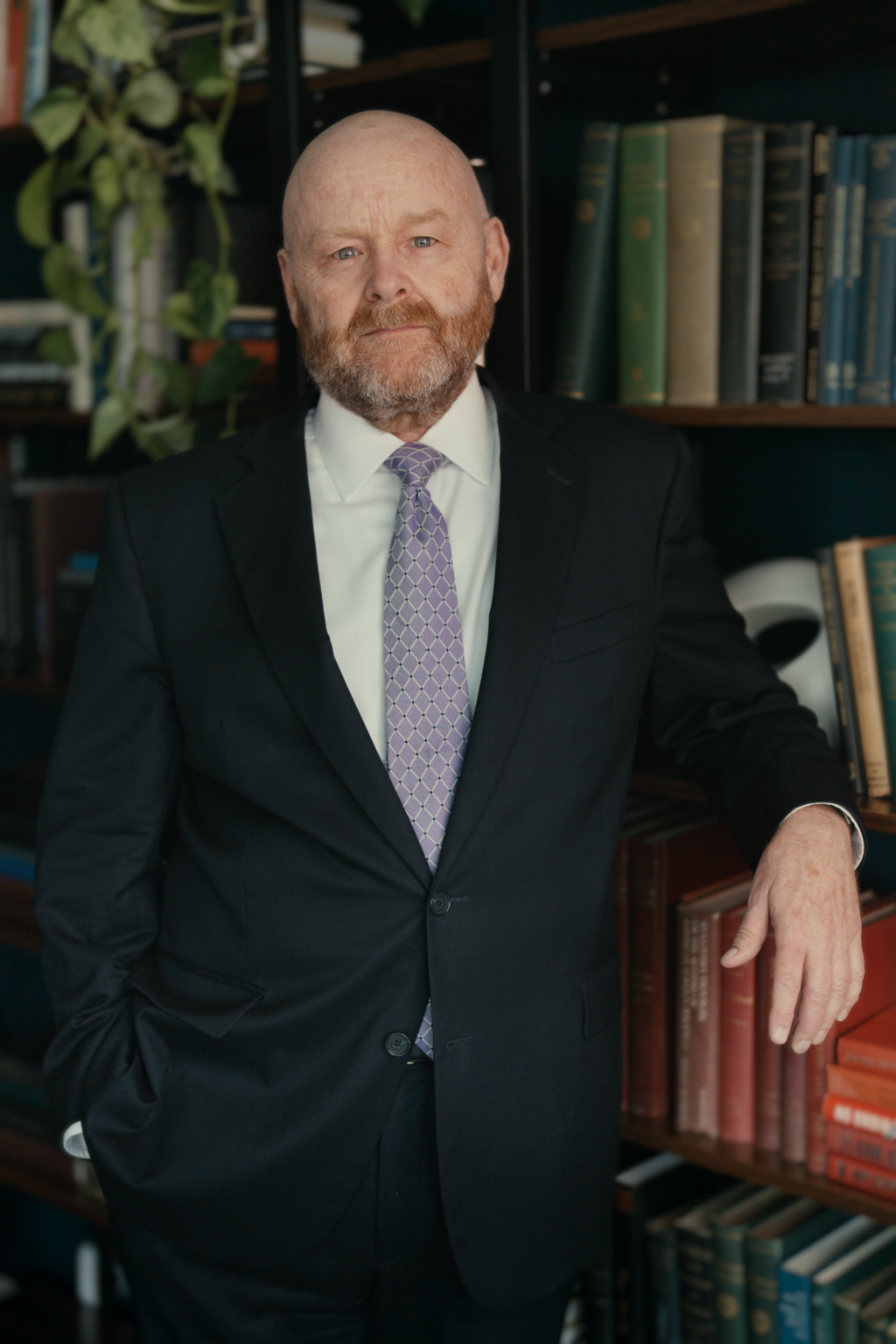The Empty Throne: America’s Abdication of Global Leadership

By experts and staff
- Published
Experts
![]() By James M. LindsayMary and David Boies Distinguished Senior Fellow in U.S. Foreign Policy
By James M. LindsayMary and David Boies Distinguished Senior Fellow in U.S. Foreign Policy
The Empty Throne: America’s Abdication of Global Leadership, my latest book with Ivo H. Daalder, just debuted. It chronicles President Trump’s first eighteen months directing U.S. foreign policy. We argue that America First, with its focus on winning rather than on leading, endangers America’s long term security and prosperity.
To give you a flavor of the book, here is the opening section.
The Empty Throne
Room 2E924 on the outermost ring of the Pentagon was packed. Better known as “the Tank,” it is one of the most secure facilities in the US government and the meeting place for the Joint Chiefs of Staff. On the morning of July 20, 2017, though, it hosted a special guest—the president of the United States. Gathered with Donald Trump in the small, windowless room was virtually everyone who was anyone dealing with foreign and national security policy: the vice president, cabinet secretaries, assorted White House advisers, and the chair and vice chair of the Joint Chiefs of Staff. They were there to provide Trump with a crash course on American global leadership.
The long-scheduled visit was on the face of things unremarkable. Many presidents had traveled to the Tank to receive briefings and show their appreciation for America’s service men and women. But Secretary of Defense James Mattis and Secretary of State Rex Tillerson had an ulterior motive in arranging Trump’s trip that day. They believed that six months into his presidency he still had much to learn about the world and America’s role in it. On the campaign trail he had repeatedly shown his ignorance about basic foreign policy issues, even as he castigated past administrations, Democratic and Republican alike, for what he called their catastrophic choices. Reaching the Oval Office hadn’t miraculously given him a deeper grasp of global politics or a greater appreciation for the “lousy” deals and “stupid” commitments his predecessors had made. Instead, he resisted inconvenient facts, repeated urban legends, and contested the counsel his advisers offered. Perhaps a tutorial in the Tank on how and why the United States had pursued an outsized role around the world since World War II might persuade him that it was worth continuing to do so.
Mattis set the context for the meeting at the start. “The greatest thing the ‘greatest generation’ left us,” the retired Marine four-star general said to open the briefing, “was the rules-based postwar international order.” The briefers then took Trump on a tour around the globe. Using maps, charts, and photos, they laid out America’s far-flung overseas commitments. They reviewed alliances and trade deals, carefully explaining what challenges and opportunities the United States faced beyond its borders. To make their brief more compelling to a president who had made his fortune in real estate and who had committed his administration to bringing jobs back home, they stressed how America’s global leadership benefitted US businesses and created jobs for Americans back home.
The student, though, eventually challenged his tutors. He wasn’t impressed with the alliances and agreements they were praising. “This is exactly what I don’t want,” he objected. He peppered them with questions. Why were US troops in South Korea? Why didn’t America’s free-trade agreements generate surpluses for the United States? Why didn’t Europe pay its fair share for NATO? Why shouldn’t the United States build up its nuclear stockpile? Some of the exchanges grew testy as the experts tried to persuade a president who thought he knew more than he did to adopt a worldview utterly foreign to his thinking. At several points Trump rebuked his briefers with a simple and direct rebuttal: “I don’t agree!”
When the meeting ended after two hours, Trump praised his briefers to the reporters waiting outside the Tank. The discussion had been “great” and the people at the Pentagon “tremendous,” he said. “The job they do—absolutely incredible.” That didn’t mean, however, that they had dented his deep skepticism about the value of America’s military alliances and the benefits of its many trade agreements, let alone persuaded him to lead what he saw as ungrateful friends who laughed at America while stealing its jobs and wealth.
The July 20 meeting later gained fame for the pithy assessment Tillerson made of Trump’s intelligence after the president left the Tank to return to the White House. He’s a “moron,” the former Eagle Scout told a few colleagues. Tillerson’s blunt assessment dominated Washington conversation when it leaked months later. But the more consequential assessment, even though it drew almost no attention, was the one Trump made in the Tank as the meeting ended: the rules-based world order that so captivated his briefers was “not working at all.”
The overriding question for America and the rest of the world was, would Trump try to fix it or walk away from it?
You can tweet your thoughts and questions about the book using #TheEmptyThrone and let me know what you think @JamesMLindsay.
